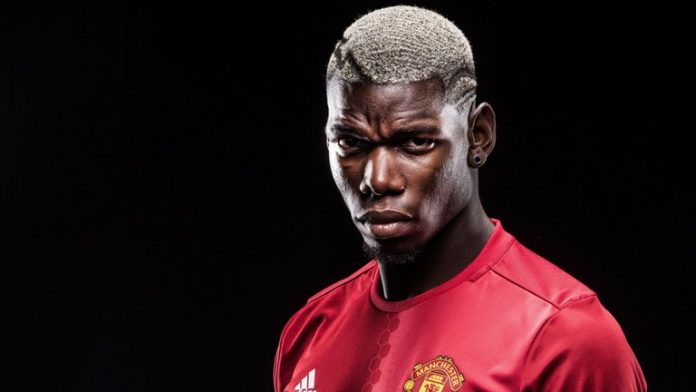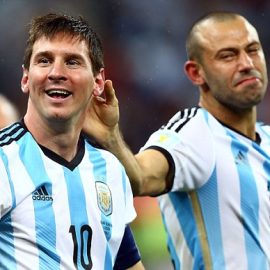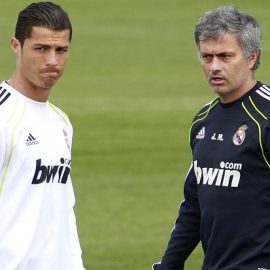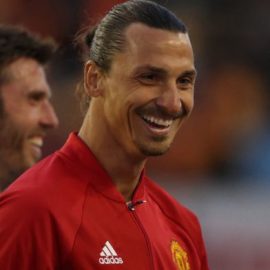Italy boss, Marcello Lippi, discussed Amauri of Juventus, his management philosophies and the leadership example of Fabio Cannavaro during an interview with the Milan sports daily, La Gazzetta dello Sport.
Amauri of Juventus is Now Italian
Amauri è diventato italiano? Questo non significa che sarà certamente convocato: sarà visionato come tutti gli altri, mi prendo questo mese che ancora ho per valutare bene e prendere delle decisioni che sono fatte solo ed esclusivamente per il bene della Nazionale”.
“Amauri became an Italian citizen? This doesn’t mean that he will surely be selected. He will be watched just like all of the rest. This month, I still have to evaluate properly and make decisions that are made exclusively for the good of the National team.”
“È sempre stato attaccato, però lui è stato chiaro sin dall’inizio mi ha sempre detto che voleva giocare in Italia e si sentiva italiano, io gli ho sempre risposto che, quando fosse diventato italiano, sarebbe stato visionato come tutti gli altri. La sua scelta l’ha fatta subito. Inoltre se e un calciatore va male nella propria squadra, non è detto che non meriti di essere chiamato. Il singolo può andare male perché la squadra non gira. In Nazionale, in un’altra realtà, le cose possono cambiare”.
“He has always been attacked, but he has been clear from the beginning. He always told me that he wanted to play in Italy and felt Italian. I always responded that when he became a citizen, he would be watched like the rest. His choice was made immediately. In other words, if a player does poorly in his own club team, it isn’t written that he does not merit being called up. A single player can do poorly because the team isn’t doing well. At the National team level, it is another reality, and things can change.”
Same Coaching Philosophy Since 1982
“Da quando ho cominciato a fare l’allenatore, nel 1982, ho mantenuto sempre le stesse idee nella costruzione di un gruppo. Dopo il trionfo ai Mondiali 2006, ho ricevuto le telefonate di giocatori che guidavo nel 1982 e nel 1983. A loro, mi hanno ricordato, dicevo le stesse cose che ho detto alla Nazionale campione del mondo. Le cose che dicevo nel 1983 le continuo a ripetere ora”.
“From the time I began coaching in 1982, I have maintained the same ideas in the formation of a group. After the 2006 World Cup triumph, I received phone calls from players that I managed in 1982 and 1983. To them, they reminded me, I said the same things that I told the World Cup champion team. The things I said in 1983, I continue to repeat today.”
No Roosters in the Chicken Coop
“Nel mio gruppo non voglio galli nel pollaio. Prima di gestire il gruppo, bisogna costruirlo. È ovvio che un allenatore di club abbia più difficoltà, me lo dicono quando li incontro. Il c.t. della Nazionale può scegliere i giocatori che vuole, ma in realtà vede i calciatori ogni 30-40 giorni. Nelle società, si può stare a contatto con la squadra tante ore al giorno. In ogni gruppo, ognuno deve mettere le proprie qualità a disposizione degli altri. Il gallo del pollaio è, invece, l’atleta di talento che però si mette a disposizione della squadra per 4-5 volte ogni anno.”
“In my group, I don’t want roosters in the chicken coop. Before you field a team, you need to build it. It is obvious that a club manager has a tougher job. They tell me this when I meet with them. The National team manager can select players that he wants, but in reality, you see the players every 30 to 40 days.
At the club level, you can be in contact with the team for many hours everyday. In every group, everyone has to put forth his own qualities at the disposition of the others. The rooster in the chicken coop, on the other hand, is the talented athlete that only puts the team ahead of himself 4 or 5 times every year.”
“A Manager Does Not Choose the Leader.”
“I giocatori devono sentire che c’è il messaggio di una guida. Il fuoriclasse, a parere mio, è il talento che mette tutte le sue qualità al servizio della squadra. Non si parla delle doti del funambolo, ma delle qualità in campo e fuori. Si tratta delle caratteristiche tipiche di un leader. Per capirci: 4 anni fa, ai Mondiali, Fabio Cannavaro è stato un fuoriclasse per quello che ha fatto in campo e fuori. L’allenatore non sceglie il leader: questo ruolo si ottiene con le qualità, giorno per giorno”.
“Players have to hear that there is a message from a guide. The superstar, in my opinion, is the talented player that puts all of his qualities at the disposal of the team. You don’t talk of someone that can dance on a tightrope, but of qualities on and off the pitch. One encounters the typical characteristics of a leader.
For example, four years ago the World Cup, Fabio Cannavaro was a star for what he did on the field and outside of it. A manager does not choose a leader. You obtain this role with qualities, day after day.”
Italian source courtesy of La Gazzetta dello Sport, April 13, 2010.
Italian to English translation by Steve Amoia of World Football Commentaries.
Add Sportslens to your Google News Feed!





